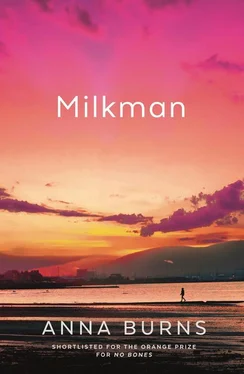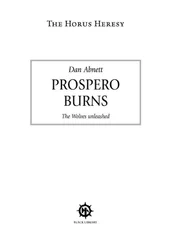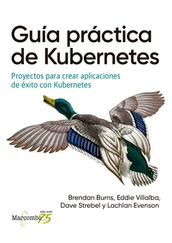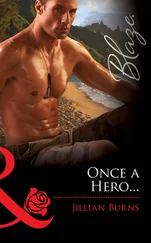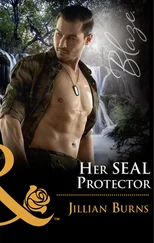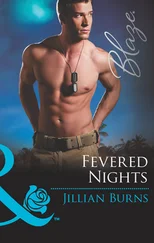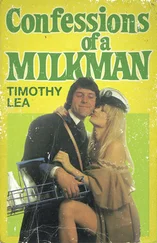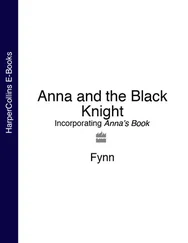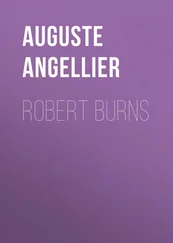*
At this time, in this place, when it came to the political problems, which included bombs and guns and death and maiming, ordinary people said ‘their side did it’ or ‘our side did it’, or ‘their religion did it’ or ‘our religion did it’ or ‘they did it’ or ‘we did it’, when what was really meant was ‘defenders-of-the-state did it’ or ‘renouncers-of-the-state did it’ or ‘the state did it’. Now and then we might make an effort and say ‘defender’ or ‘renouncer’, though only when attempting to enlighten outsiders, for mostly we didn’t bother when it was only ourselves. ‘Us’ and ‘them’ was second nature: convenient, familiar, insider, and these words were off-the-cuff, without the strain of having to remember and grapple with massaged phrases or diplomatically correct niceties. By unspoken agreement – which outsiders couldn’t grasp unless it should come to their own private expediencies – it was unanimously understood that when everybody here used the tribal identifiers of ‘us’ or ‘them’, of ‘their religion’ or ‘our religion’, not all of us and not all of them was, it goes without saying, to be taken as read. That summed it up. Naïveté? Tradition? Reality? War going on and people in a hurry? Take your pick though the answer mainly is the last one. In those early days, those darker of the dark days, there wasn’t time for vocabulary watchdogs, for political correctness, for self-conscious notions such as ‘Will I be thought a bad person if’, or ‘Will I be thought bigoted if’, or ‘Am I supporting violence if’ or ‘Will I be seen to be supporting violence if’ and everyone – everyone – understood this. All ordinary people also understood the basics of what was allowed and not allowed, of what was neutral and could be exempted from preferences, from nomenclature, from emblems and from outlooks. One of the best ways to describe these unspoken rules and regulations would be to home in for a second on the subject of names.
The couple who kept the list of names that weren’t allowed in our district didn’t decide themselves on these names. It was the spirit of the community going back in time that deemed which names were allowed and which were not. The keepers of the banned list were two people, a clerk and a clerkess, who catalogued, regulated and updated these names frequently, proving themselves efficient in their clerkiness but viewed by the community as mentally borderline aberrational for all that. Their endeavour was unnecessary because we inhabitants instinctively adhered to the list – abiding by it without going deeply into it. It was also unnecessary because this list, for years before the emergence of the missionary couple, had been excellently capable of perpetuating, updating and data-holding its own information itself. The couple who guarded it were called some ordinary man’s name and some ordinary woman’s name but were referred to in the community as Nigel and Jason, a joke not lost upon the good-natured pair themselves. The names not allowed were not allowed for the reason they were too much of the country ‘over the water’, with it no matter that some of those names hadn’t originated in that country but instead had been appropriated and put to use by the people of that land. The banned names were understood to have become infused with the energy, the power of history, the age-old conflict, enjoinments and resisted impositions as laid down long ago in this country by that country, with the original nationality of the name now not in the running at all. The banned names were: Nigel, Jason, Jasper, Lance, Percival, Wilbur, Wilfred, Peregrine, Norman, Alf, Reginald, Cedric, Ernest, George, Harvey, Arnold, Wilberine, Tristram, Clive, Eustace, Auberon, Felix, Peverill, Winston, Godfrey, Hector, with Hubert, a cousin of Hector, also not allowed. Nor was Lambert or Lawrence or Howard or the other Laurence or Lionel or Randolph because Randolph was like Cyril which was like Lamont which was like Meredith, Harold, Algernon and Beverley. Myles too, was not allowed. Nor was Evelyn, or Ivor, or Mortimer, or Keith, or Rodney or Roger or Earl of Rupert or Willard or Simon or Sir Mary or Zebedee or Quentin, though maybe now Quentin owing to the filmmaker making good in America that time. Or Albert. Or Troy. Or Barclay. Or Eric. Or Marcus. Or Sefton. Or Marmaduke. Or Greville. Or Edgar because all those names were not allowed. Clifford was another name not allowed. Lesley wasn’t either. Peverill was banned twice.
As for girl names, those from ‘over the water’ were tolerated because the name of a girl – unless it should be Pomp and Circumstance – wasn’t politically contentious, therefore it had leeway with no decrees or edicts being drawn up on it at all. Wrong girl names did not connote the same taunting, long-memory, backdated, we-shall-not-forget, historical-distaste reaction as was the case with wrong boy names, but if you were of the opposite persuasion and from ‘over the road’ you would entirely allow yourself all of our banned names. Of course, you would not allow yourself a single name that was in flourishment in our community but given your own community’s equally prescribed knee-jerk reaction, it is unlikely you would lose sleep over any of that. So with the names Rudyard, Edwin, Bertram, Lytton, Cuthbert, Roderick and Duke Of being the last of the names, on our side, on our list, which weren’t allowed, all these names were guarded by Nigel and Jason. But there was no list of the names that were allowed. Every resident was supposed to know what was permitted based on what was not permitted. You gave your baby a name and if you were adventurous, avant-garde, bohemian, simply an unforeseen human factor going out on a limb to try a new name that wasn’t an already established, legitimised name even if not on the banned list, then you and your baby would find out in due course whether you had made a mistake or not.
As regards this psycho-political atmosphere, with its rules of allegiance, of tribal identification, of what was allowed and not allowed, matters didn’t stop at ‘their names’ and at ‘our names’, at ‘us’ and ‘them’, at ‘our community’ and ‘their community’, at ‘over the road’, ‘over the water’ and ‘over the border’. Other issues had similar directives attaching as well. There were neutral television programmes which could hail from ‘over the water’ or from ‘over the border’ yet be watched by everyone ‘this side of the road’ as well as ‘that side of the road’ without causing disloyalty in either community. Then there were programmes that could be watched without treason by one side whilst hated and detested ‘across the road’ on the other side. There were television licence inspectors, census collectors, civilians working in non-civilian environments and public servants, all tolerated in one community whilst shot to death if putting a toe into the other community. There was food and drink. The right butter. The wrong butter. The tea of allegiance. The tea of betrayal. There were ‘our shops’ and ‘their shops’. Placenames. What school you went to. What prayers you said. What hymns you sang. How you pronounced your ‘haitch’ or ‘aitch’. Where you went to work. And of course there were bus-stops. There was the fact that you created a political statement everywhere you went, and with everything you did, even if you didn’t want to. There was a person’s appearance also, because it was believed you could tell ‘their sort from over the road’ from ‘your sort this side of the road’ by the very physical form of a person. There was choice of murals, of traditions, of newspapers, of anthems, of ‘special days’, of passport, of coinage, of the police, of civic powers, of the soldiery, the paramilitary. During the era of not letting bygones be bygones there was any number of examples and many nuances of affiliation. Inbetween was the neutral and the exempted and what had happened at maybe-boyfriend’s house was that his neighbour – with all other neighbours present – had homed in on the protocol and inflammatory symbolism of all that.
Читать дальше
